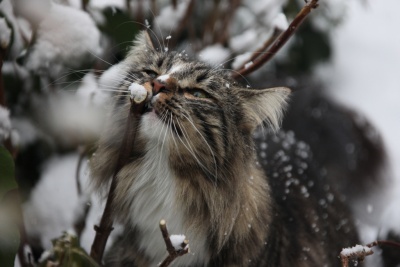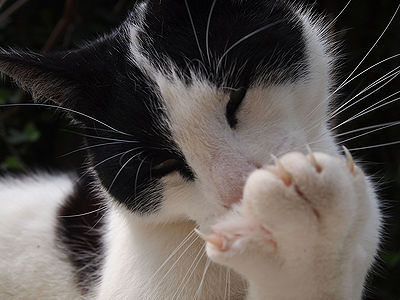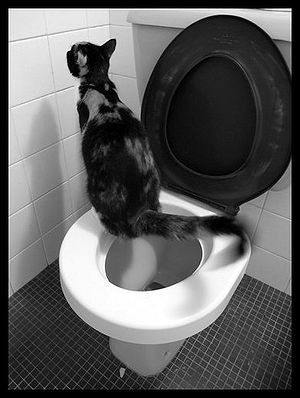
All wild cats mark their territory. And domestic cats still retain the urge to stake out their claim, especially if they feel like their territory is being imposed upon.
Cats communicate through scent. They have scent glands in their cheeks, flanks and foot pads. They rub these parts of their bodies on whatever they feel belongs to them, even you.
Unfortunately (for us) our pet cats also use urine to mark the places (and even people) they deem as their own. Cats spray on vertical surfaces and urinate on horizontal ones. Both males and females mark. Even in multiple cat households, marking goes on. If your cat is not neutered or spayed, the urge to mark territory is strong. If your cat is spayed or neutered at an early age, chances are you won’t have this problem.
Any changes in a cat’s routine or environment can cause stress. Your cat may relieve stress by leaving his urine scent.
There are things you can do that may help to eliminate marking and inappropriate urination. Clean the litter box regularly. Place food and water bowls at the area marked. Cats don’t like to eat where they may spray. Exercise your cat more frequently. Tiring your cat can help. Play in the areas where your cat likes to mark. Soap and water won’t eliminate the odor. Use odor neutralizing products now on the market. If all else fails, consult with a feline animal behaviorist. Speak to your veterinarian about medications for the problem. Your cat should have a physical examination to make sure there’s no medical reason for the marking.



